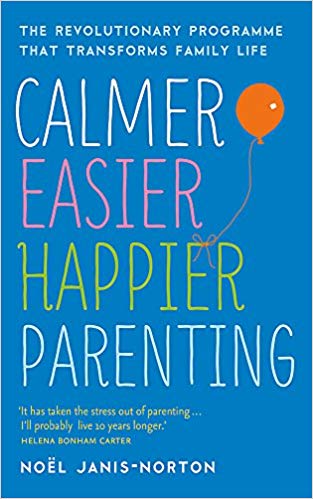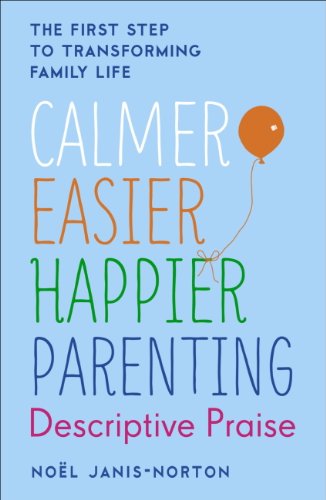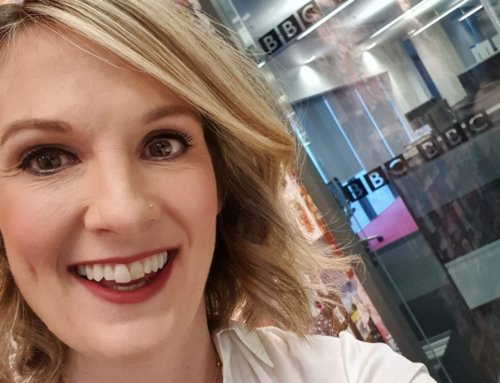One of my personal parenting triggers is being spoken to in a disrespectful voice, my daughter at around the age of 5 used to be so rude to me it would have me in tears, nothing seemed to work until I used techniques championed by author and parenting coach Noël Janis-Norton. Who suggests rather than telling the child of for the behaviour we do not want we wait for the moments they display the opposite behaviour, in my case being polite and kind, and you compliment the child for that “ I notice you are being polite and kind” wow it was almost instant my daughter started speaking to me in the most polite and kind way, using Descriptive Praise really worked, so it is a pleasure to have the opportunity to ask some vital questions to Noël Janis-Norton today.
Hi Noel, Welcome to No Mum Is An Island. I am a great believer that no mum or dad should have to do everything themselves, we can’t possibly know it all, and we need all the support we can get, there is a wealth of information out there to help us upgrade our parenting experience, to make our lives easier and this website is a hub for just that! Your book Calmer, Easier, Happier Parenting is a life-changing resource to parents around the world.
Why is cooperation from our children the key to successfully tackling many of our parenting struggles?
In this context, the definition of cooperation is children and teens doing what they’re told the first time they’re told, and doing it without a fuss. We will never get 100% cooperation because our children are human – not robots, not angels. But we can achieve 90% cooperation, and it’s worth focusing on achieving this goal because the benefits are immense.
For parents, family life is calmer, easier and happier with cooperation. Our day runs more smoothly; there is more time for fun because there is less hassle; parents are less stressed, anxious, frustrated, exhausted. Cooperation is good for children as well. Children who are mostly cooperative get more smiles, more hugs, more praise, even more opportunities in life. I am not saying that it should or it shouldn’t be like this, but it’s a fact. In short, 90% cooperation leads to more relaxed, confident parents and to more relaxed, confident children and teens.
Understandably, parents want their children and teens to be cooperative, but often parents don’t know how to achieve this. In fact, whatever group of parents I’m talking to, whatever country I’m in, the main complaint parents have is lack of cooperation.
Can you share with us how you teach parents to encourage cooperation?
First let me explain that I don’t teach parents how to ‘encourage’ cooperation, because encourage is too vague. I teach parents practical and effective strategies that get children into the habit of cooperating, first time without a fuss – most of the time. Children are not born knowing that they are supposed to do what they’re told. We need to teach them the skill of cooperating, and we need to teach them the habit of cooperating.
The first strategy I teach parents for increasing cooperation is to Descriptively Praise whenever children are cooperative (and also to Descriptively Praise whenever children do the right thing without having to be told, which is what I call self-reliance). Descriptive Praise is not the most important strategy in the ‘Calmer, Easier, Happier Parenting’ toolkit, but it’s the first one I teach parents because Descriptive Praise helps motivate children to want to cooperate.
Some of the other strategies that I teach parents, which also help to improve cooperation (and self-reliance), are Special Time, Preparing For Success (which has three components), Reflective Listening, United Front, clear and consistent Rules and Routines, Action Replays and a wholesome lifestyle. In my books, I explain in great detail about each of these strategies.
Descriptive praise is probably one of the most powerfully effective tools that I use with my daughter. Can you explain to people who may not have come across this concept how it works and what it may look like?
Children naturally want to please their parents (although I know there are some days when it feels hard to believe!). When we show that we are pleased, they will do more of whatever it is we are praising them for. However, busy parents are often preoccupied and frequently forget to notice their children’s good behaviour, for example doing what they’re told or remembering and following the rules and routines without being told. Or the parents may notice the good behaviour but too often forget to mention it.
Children need and crave and deserve our attention. When we don’t acknowledge what they are doing that’s good, children and teens can easily drift into the habit of misbehaving because that definitely does get the parent’s attention.
When parents do make a point of praising, for example to reinforce good behaviour, it’s all too easy to slather on the superlatives (‘Brilliant’, ‘Amazing’, ‘Terrific’). There are two reasons why this kind of praise doesn’t usually lead to better behaviour. Children know that their good behaviour isn’t amazing and wonderful, so the superlatives don’t influence them. Also, the superlative praise is too vague, without enough information about what the child needs to do again to get more of our appreciation and approval.
Descriptive Praise is very different. With Descriptive Praise, we say exactly what our children did right or exactly what they didn’t do wrong. This gives children very useful and important information so that they know exactly what to do to get more of our appreciation. And it leaves out the superlatives that aren’t even true.
Here are some examples of Descriptive Praise:
You stopped whingeing.
That’s a friendly voice. I love to listen to your friendly voice.
You’re letting your brother play with one of your cars.
When the baby knocked down your tower you were so angry, but you didn’t hit him.
You remembered to set the table, and you’re doing it without any arguing or whingeing.
Remember to say your Descriptive Praises with a smile on your face and a smile in your voice.
You champion motivation and prevention before consequences. Can you give us an example of how this works?
Parents naturally want to know what to do when a child has misbehaved, which might be not cooperating or ignoring a routine or breaking a rule. Parents often assume that consequences after misbehaviour will teach the child not to repeat the misbehaviour in the future.
Unfortunately consequences are often not effective. One reason is that children are impulsive. They tend to act, or react, in the moment, without thinking about what the possible consequences of their misbehaviour might be. Also, parents tend to threaten consequences several times before they take action and finally follow through. These threats often make children upset and angry, and when children are upset they tend not to behave well.
Appropriate consequences can be effective, but first it makes sense to focus on preventing a lot of the misbehaviour before it happens. Then you can use consequences to deal with the small amount of misbehaviour that remains.
Preparing For Success is a very useful strategy that results in children and teens getting into the habit of doing what they’re supposed to do. The three prongs of Preparing For Success are: Preparing the environment, Preparing the child, Preparing ourselves as parents. In my books I explain how to use these methods.

Can you tell us why “putting rules and instructions in the positive” is such a great tool?
Children and teens want to please their parents; they don’t want us to be annoyed with them.
Rules and routines help our children to understand exactly what behaviour we want.
What often happens is that a stressed, rushed parent makes the mistake of phrasing rules and instructions in the negative:
Don’t whinge.
Don’t leave your clothes on the floor.
Don’t take that tone with me, young man.
Don’t say ‘Yuck’ about the dinner.
Don’t leave your homework to the last minute.
Don’t hit your brother.
Don’t jump on the bed.
Don’t touch my phone.
etc, etc.
One problem with all these ‘Don’t’ rules is that as your children are hearing what they shouldn’t be doing, they can easily visualise themselves doing the Don’ts.
It’s much more effective when children and teens hear what they should be doing. And it sounds friendlier, so your children will be more motivated to cooperate:
Tell me what you want in a polite voice, and say please.
Put your clothes back where they belong.
Even when you’re upset, talk to me in a polite voice.
If you don’t like the food, leave it on your plate.
Do all your homework before you ask for screen time.
When you’re upset with your brother, tell him in a really strong voice what you want him to do.
When you feel like jumping, go in the garden to jump.
You need to get my permission before you’re allowed to touch my phone.
As a parenting coach, you guide families to have a calmer, easier, happier life. If you had one piece of advice that would support parents to upgrade their family challenges what would that be?
Let’s remember that most people don’t embrace change easily, even when we know it’s good for us. Our children also may not accept change easily, especially because often they don’t really understand that the changes we want from them will be good for them.
Therefore it’s absolutely natural and to be expected that they’ll probably make a fuss when parents start practising being firmer about cooperation and self-reliance. Don’t lecture or argue with them or try to set them straight. Let your children and teens have their upset feelings. You can comfort them with a hug if that might help. You can Reflectively Listen to their upsets.
My most important piece of advice for parents is this: Don’t be swayed into changing your mind. You, the parent, are not perfect, but you definitely do have more experience, more maturity, more common sense and more wisdom than your children. Because of this, it’s your values, not your children’s wants and whims, that need to prevail in your home.
You can buy Calmer, Easier, Happier Parenting and Calmer, Easier, Happier Parenting: Descriptive Praise and Calmer, Easier, Happier Boys: The revolutionary programme that transforms family life and Calmer Easier Happier Screen Time: For parents of toddlers to teens: A guide to getting back in charge of technology For free resources, videos and much more wisdom visit www.calmerparenting.co.uk
If you are looking for more parenting inspiration take a look below.








